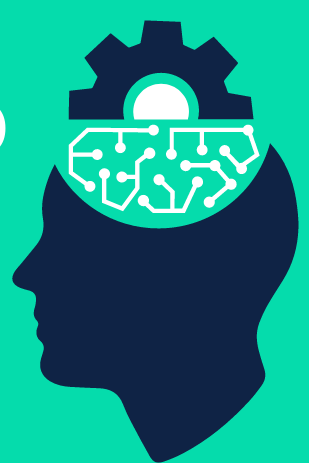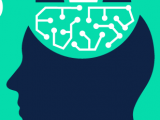
Personal News: Who made it to the front line? Part 2
24. November 2019persons
Personalities, chefs, extraordinary people, geniuses, know-it-alls….,
New people, newcomers, relegates, politicians
Personal News: Who made it to the front line? Part 2
11.11.- 23.11.2019
Alain Bénichou, CEO of IBM’s Greater China business, says that only about 14 percent of companies in China actively use AI. Bénichou made the remark on Tuesday during the East Tech West conference of CNBC in Guangzhou. While China is adopting the AI faster than the world average, it is still „a long way off,“ Bénichou said, adding that there is a „problem with skills and talent in Chinese companies, so there are difficulties in going beyond the proof-of-concept phase. They would also be hampered by a lack of confidence in AI corporate systems, which are not always transparent. „There is a desire for AI,“ Bénichou said, „The problem is how to enforce it.“
Forrester’s vice president Huard Smith has listed a list of professions that he believes will be largely replaced by automation by 2030. These include 73 percent of all cabin-related jobs, or about 20 million jobs, and 38 percent of location-related jobs, such as grocery stores – that’s about 30 million jobs. By 2030, Smith believes, AI will eliminate nearly 30 percent of all jobs in the U.S. and create the equivalent of only 13 percent. „It’ll be a difficult 10 years and the world won’t stand still – so buckle up.“
Former Yahoo CEO Marissa Mayer has founded a company that will focus on AI technology such as self-propelled cars and face recognition, she said. Mayer resigned from Yahoo shortly after the sale to Verizon Communications in 2017. At this week’s Techonomy conference, she explained how she focused on Lumi Labs, a mysterious company she founded with former Yahoo SVP Enrique Munoz Torres. Lumi, meaning „snow“ in Finnish, focuses on developing AI applications for consumers, Mayer said, including a product that uses AI to address the many digital contacts that clog people’s phones. „The primary focus is on the major challenges of AI such as self-propelled cars and global face recognition,“ Mayer said. „But there are smaller applications that can be just as useful to help people every day.“
Wil Bill Gates AI in the bottle?
AI can’t categorize people properly if they don’t seem stereotypically male or female, writes CNN Business‘ Rachel Metz. Tech companies feed AI systems with images and other data marked as either „male“ or „female“ that could be used to predict the gender of people like buyers in Amazon stores. But the software typically does not work for people who identify themselves as transgender or non-binary, for example. Some AI and gender experts fear that AI classifications could end up harming people. Meredith Whittaker, a former Google employee and co-founder of the AI Now Institute at New York University, argues that we should „better analyze these kinds of assumptions – that a person’s body or face or hairstyle or hair can recognize his inner state or identity.
Bill Gates says that it is difficult – if not impossible – to limit the exchange of scientific research in the AI. Speaking at the Bloomberg New Economy Forum in Beijing on Thursday, Gates said there is no turning back from the US tradition of openly sharing scientific research, which he said has a particular advantage in the AI field. „AI is very difficult to put back in the bottle and whoever has the open system will go so far,“ Gates said. The open sharing of research results is one of the reasons people come to Microsoft to work for Microsoft, he noted. „We like to pay their salaries, but if we didn’t have this approach, these people would go somewhere else to work.
Dean Baquet, executive editor of the New York Times, says President Trump’s rhetoric has put reporters‘ lives at risk. The president’s description of journalists as „enemies of the people“ and personal attacks on reporters like Maggie Haberman of the Times are „terrible and rather unpresidential,“ said Baquet The Guardian. „I think if he actually insults reporters, says that they are un-American, says that they are enemies of the people…. this sentence has a long history. I think if he says that, it’s a terrible attack on the press.“ In the same interview with The Guardian, Baquet defended the Times‘ avoidance of the term „racist“ when it came to some of President Trump’s remarks. „I think Donald Trump is saying racist dividing things,“ said Baquet, the Times‘ first black executive editor.
Are Zuckerberg and Cook Trump’s new friends?
U.S. President Trump hosted a previously secret dinner last month at the White House with Facebook CEO Mark Zuckerberg, NBC News reported. Facebook board member and close Trump ally Peter Thiel also attended the meeting, which took place during Zuckerberg’s trip to Washington, D.C., to testify before the legislature about the new crypto currency scale of his platform. It is unclear why the dinner was never publicly announced by Facebook or the White House.
President Trump is expected to sign laws showing solidarity with pro-democracy efforts in Hong Kong – a step that could jeopardize a new trade agreement with China. The legislation, which both the Parliament and the Senate passed with cross-party support, would impose sanctions on those in China accused of human rights violations following the mass protests in Hong Kong. But the signing of Trump could complicate trade talks with the Chinese, who have promised to take „strong countermeasures“ when the law becomes law.


